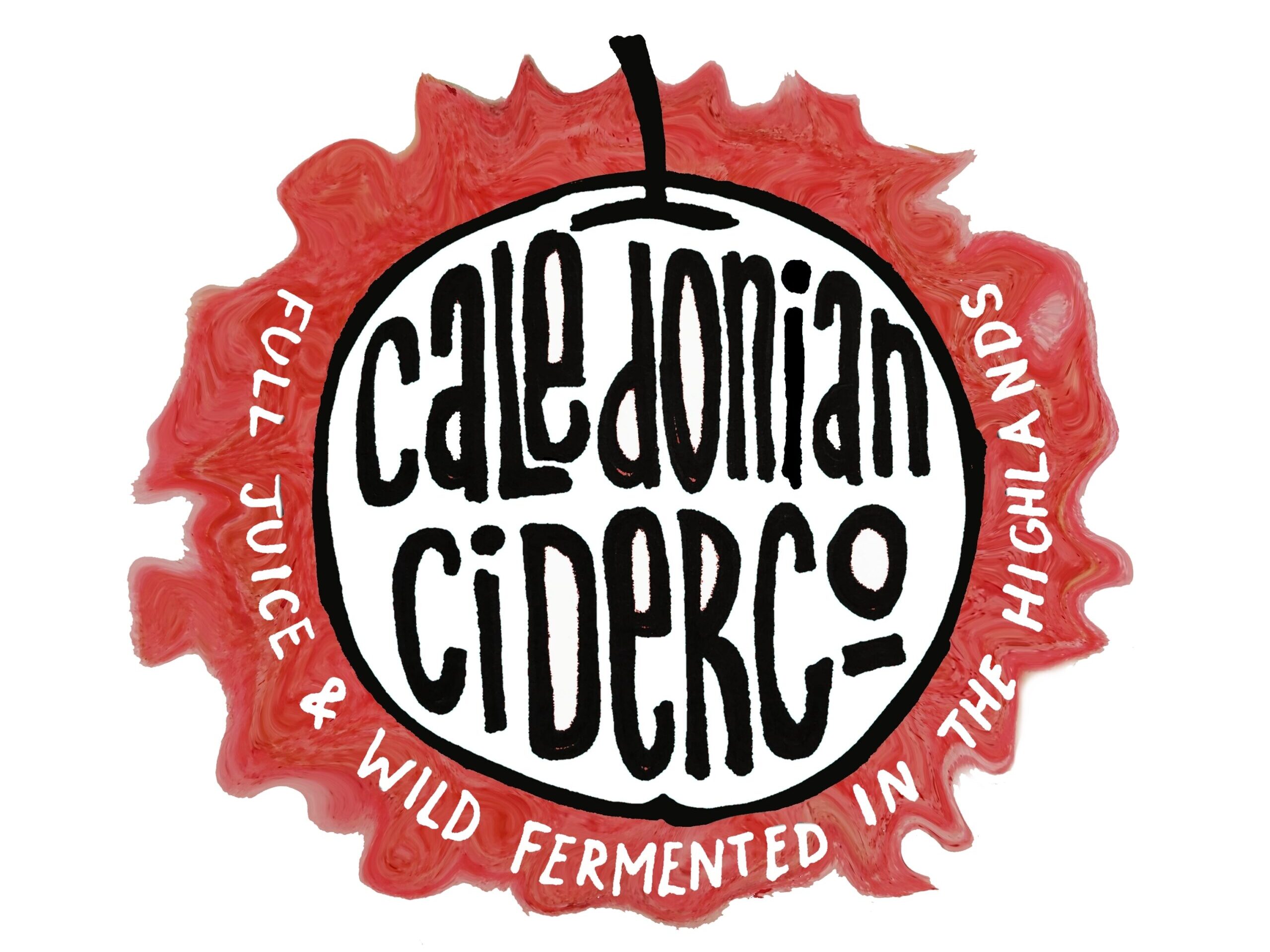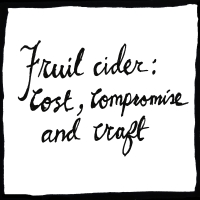The rise of the fruit cider category over the last 10 years or so has been both dramatic and divisive in the cider community, on the one side you have the purists and traditionalists who believe cider should only contain apples while on the other you have lots of cider newcomers who are enjoying the variety of flavours on offer. Personally I’d describe myself as a fruit cider sceptic, I’m not against the concept but I have concerns about the practices at work, hopefully this post will help explain those concerns.
According to the latest cider report from Westons (available here) 40% of all cider sold in the UK is now fruit cider.
Now, another way of looking at that statistic is that 40% of cider sold in the UK is now actually not cider at all. The reason why it isn’t cider is that the only fruits legally permitted to be made into cider are apples* in much the same way that the only meat permitted to be in a beef lasagne is beef (as opposed to horse).
So if fruit cider isn’t cider then what is it? Well on the surface that’s a fairly easy question to answer, it’s Made-Wine, and made wine is defined for us in HMRC Notice 163 as follows;
‘Made-wine’ means “liquor which is of a strength exceeding 1.2% and which is obtained from the alcoholic fermentation of any substance or by mixing a liquor so obtained or derived from a liquor so obtained with any other liquor or substance but does not include wine, beer, black beer, spirits or cider”
So it’s pretty much a catch all term for everything that you could possibly make that isn’t wine, beer, cider or a spirit.
A very good question to ask might be; how come a made wine can be sold and marketed as cider if it isn’t actually cider? Well, the thing is, is it? If you read the labels of most of these products they describe themselves as cider with *insert fruit here* rather than specifically fruit cider.
Kopparberg for example state on their  front label Premium Cider with Mixed Fruits. So is it just that we’re calling it fruit cider instead of cider with other fruits added then? Is it just a misnomer? Well, yes and no. If I have a glass of cider and add a dash of blackcurrant then most would agree that what I’ve now got is a glass of cider and blackcurrant. What if I had a glass of blackcurrant and I put in a dash of cider, it could still be described as cider and blackcurrant which would of course still be true. But what if I had a glass of water and added a dash of cider, a dash of blackcurrant and a tablespoon of sugar, would it still be a glass of cider and blackcurrant?
front label Premium Cider with Mixed Fruits. So is it just that we’re calling it fruit cider instead of cider with other fruits added then? Is it just a misnomer? Well, yes and no. If I have a glass of cider and add a dash of blackcurrant then most would agree that what I’ve now got is a glass of cider and blackcurrant. What if I had a glass of blackcurrant and I put in a dash of cider, it could still be described as cider and blackcurrant which would of course still be true. But what if I had a glass of water and added a dash of cider, a dash of blackcurrant and a tablespoon of sugar, would it still be a glass of cider and blackcurrant?
In a previous post (read it here) I wrote about how shamefully low the actual apple content can be in some UK ciders, and as low as that paltry 35% minimum may seem there is no minimum amount for a made wine (It’s not a cider remember so to specify a legal minimum apple content would make no sense for a made wine). So if I made a drink that failed to legally qualify as cider due to its low apple content, for arguments sake let’s say it’s got just 15% apple content and I put in some blackcurrant and raspberry concentrate, let’s say 1% as you don’t need much to go a long way. I could then market that product as Cider with Blackcurrant & Raspberry, or probably Premium Cider with mixed fruits or something (because hey why not?) even though 84% of what’s in the glass is neither cider nor mixed fruits.
As poorly regulated as cider is in the UK, the regulations around made wine are by necessity of the breadth of its definition even looser. I was once approached by a sales rep from a Swedish company who offered a range of fruit concentrates and flavourings in various combinations, during the pitch he also pointed out that if desired his company can even provide the ethanol for your fruit cider meaning you just have to add water and bubbles before bottling.
So in general my issue with “Fruit Cider” lies with both the fruit (Frequently this is just cheaply sourced concentrate and flavourings) and the cider element (which can be made from any minuscule quantity of apple juice).
Now, it would be ludicrous for me to just say that all cider & fruit/adjunct combinations are low quality, of course there are legitimate examples out there but they are comparatively rare due to the exploitation and saturation of the category by the lower quality options, and are by necessity more expensive. The duty rates, after all, are heavily stacked in favour of a higher water content product.
A 100% juice cider at 7.4% alcohol is taxed at 50.7p/litre.
This rate rises to £2.97/litre if I were to add a handful of elderflowers to it, that’s an increase in taxation of nearly 487%. A cider that was £4.50 a bottle in a pub would become something like £7.50. The reason for this duty hike is due to cider having a list of permitted ingredients, anything added which is not on that list causes the cider to become classified as a made wine (to see what IS on that list have a read of this previous post)
However if I add some water at the same time as my elderflowers, almost doubling the volume in fact, that would bring my alcohol content down to 4%** and would then mean my made wine / fruit cider only incurred taxation of 91.7p/litre. This water addition would lower my juice content by 46% meaning the consumer is getting almost half a pint of water in every pint of fruit cider! Now that is assuming we started off with a 100% juice cider at 7.4% alcohol but as shown in the previous post on juice content it’s unlikely the bigger producers are starting with anything like that much apple content. There’s an interesting loophole however which has been seized on by a couple of cider companies that simply provide the bar with a range of syrups to add to the glass before filling thus paying the lower cider duty rate.
Taxing cider on it’s alcohol content isn’t a great idea from a quality perspective. If a brewer wants to make a 4% beer then they simply put the appropriate quantity of malt into the mash which results in a starting sugar content which will dictate the final alcohol content. Cider, however is NOT beer and it’s NOT brewed. Apple juice contains naturally occurring sugars which dictate the final alcohol content in the cider, there are only 2 ways of adjusting that sugar level, to lower it add water or to increase it add sugar. This difference between beer and cider is crucial because it’s as if a brewer has made a beer at 8% then just added water to make it 4% rather than making a 4% beer in the first place, the diluted beer would be inferior in every instance, likewise our brewer may have made a 4% beer then added sugar to make it ferment to 8%, again the beer would be inferior to one originally made to achieve 8% as beer isn’t simply fermented sugar, it is fermented malt as cider is fermented apple juice not just sugar. The duty system in the UK is at best a confused mess, that’s a whole other rant for another day though.
This might be a controversial statement but I strongly suspect that most “fruit cider” sold at 4% alcohol is only 4% for one reason, cost. There’s not much craft about making a product to cost and compromising on the quality. There is after all the option to just not make it rather than compromise and make something that isn’t all it could be.
It’s clear that there is a demand for ciders with added fruits / adjuncts, unfortunately for the drinkers it’s near impossible under the current set of rules that they will be offered something that is as good as it could possibly be. Two products however that stand out for me are Tom Oliver’s At The Hop range and Turners Elderflower, both coming in at 5.5% abv the makers have made the decision to not add more water to hit the 4% mark and have taken the hit on the extra duty this alcohol incurs, that takes a degree of integrity as a cider maker and in my view should be recognised and celebrated.
So is it possible to make a genuine real “fruit cider” that isn’t overly expensive? Yes, go with the producers you trust who have the integrity to put quality before cost and list their ingredients fully.
Good luck seeking them out.
*Or pears (up to 25% of the total weight)
**Virtually all “Fruit Ciders” regardless of production scale / quality of ingredients are diluted to 4% abv e.g. Strongbow Dark Fruits, Kopparberg, Rekorderlig, Old Mout, Brothers Rhubarb & Custard, Tutts Clump Strawberry, Crafty Nectar No.8 Rhubarb, Lilly’s etc…

